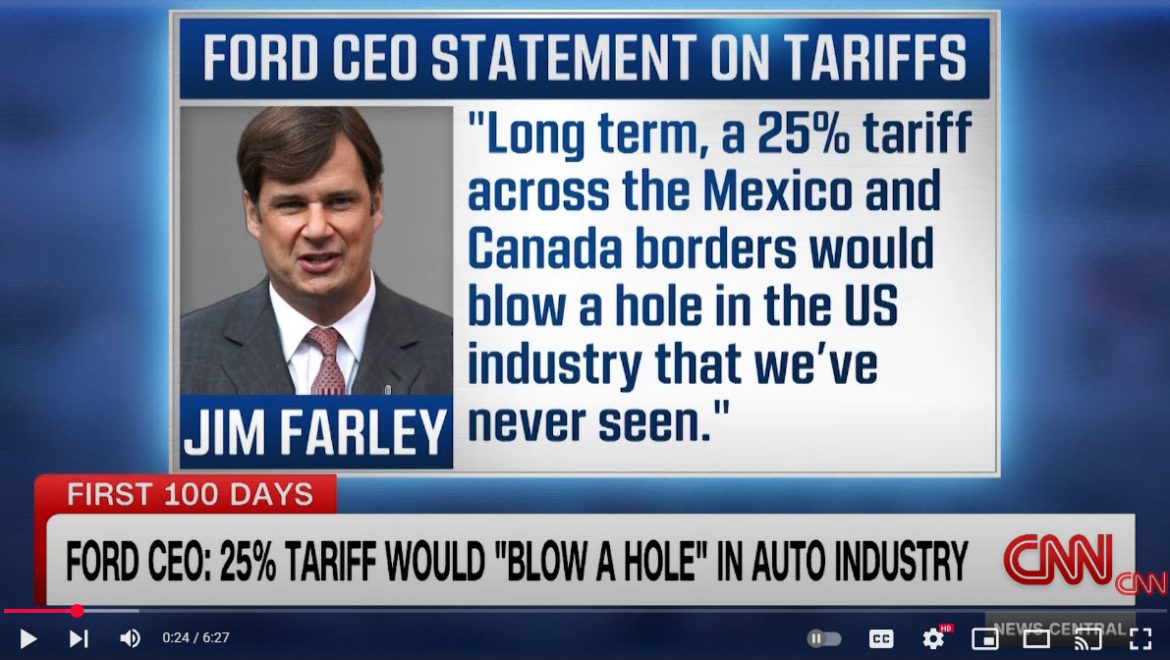President Donald Trump has announced a one-month exemption from the recently imposed 25% tariffs on imports from Canada and Mexico for U.S. automakers. This decision comes after discussions with executives from General Motors, Ford Motor, and Stellantis, aiming to provide temporary relief to the automotive industry facing potential significant cost increases.
The tariffs, initially set to take effect on March 4, were part of the administration’s strategy to address issues related to border security and drug enforcement. However, industry experts have raised alarms about the economic impact of these measures. The Anderson Economic Group estimates that the cost to manufacture a crossover utility vehicle could rise by at least $4,000, with electric vehicles potentially seeing increases up to $12,000. Such hikes could lead to reduced sales and even the discontinuation of certain models.
Automakers have expressed concerns about the tariffs’ effects on production and pricing. Jim Farley, CEO of Ford, warned that the tariffs could “blow a hole” in the business, making some vehicles “unsellable” due to increased costs. The industry fears that higher prices might deter consumers, especially with the average new vehicle price already nearing $50,000.
The exemption delays the enforcement of tariffs until April 2, providing automakers with a brief period to adjust and strategize. Despite this temporary relief, the administration maintains its stance on implementing reciprocal tariffs to encourage domestic production and address trade imbalances.
The announcement has had immediate effects on the financial markets. Following the news, major U.S. stock indices experienced gains, with the S&P 500 rising by 1.1%, the Dow Jones Industrial Average increasing by 493 points (1.2%), and the Nasdaq Composite advancing by 1.3%. Shares of Ford and General Motors saw increases of over 5%, reflecting investor optimism about the exemption’s potential to mitigate immediate economic disruptions.
While the exemption offers short-term respite, the automotive industry remains cautious. The potential for significant price increases looms, with estimates suggesting that tariffs could add between $3,500 and $12,000 to vehicle prices, depending on the model. This escalation could lead to reduced consumer demand, production cuts, and job losses within the sector.
As the April 2 deadline approaches, automakers are likely to intensify efforts to seek long-term solutions and possibly negotiate further exemptions or adjustments to the tariff policy. The situation underscores the delicate balance between trade policies and their direct impact on domestic industries and consumers.
Source Links:
- Trump Grants Automakers One-Month Exemption from Tariffs
- US Tariffs Could Add Up to $12,000 to New Car Prices
- Ford CEO Warns Tariffs Will Make Some Cars ‘Unsellable’
- White House Announces One-Month Tariff Exemption for US Automakers
- Financial Markets React to Trump’s Tariff Exemption
- Trump Announces One-Month Delay of US Tariffs for Cars from Canada, Mexico



